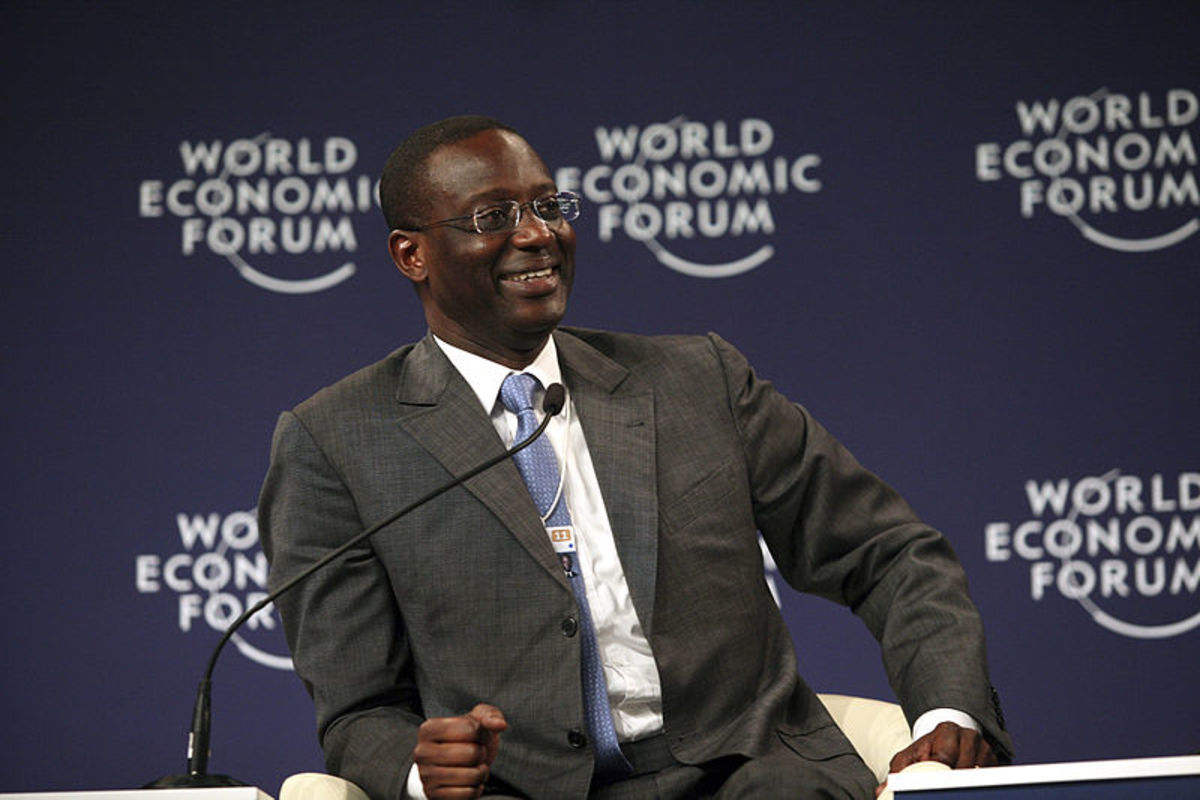For better or worse, Biglaw is more of a business than it ever has been. It’s no longer the case that you join a firm after law school, work hard and make partner, and remain at the firm until you retire or die. Instead, partners regularly part ways with their longtime firms, in search of better platforms — and bigger paychecks.
In this environment, it’s more important than ever for lawyers — and not just partners, but counsel and associates as well — to understand and excel at business development and marketing. If you want a long and successful career at a law firm, you need to be not just an excellent attorney but also a talented marketer.
How can you become a Biglaw business-development whiz? It’s not easy; many major rainmakers will tell you that it took them years to master the art. But you can definitely give yourself a head start through reading and research.
My recommendation: Start with Best Practices in Law Firm Business Development and Marketing by Deborah Farone, published earlier this year by the Practising Law Institute (PLI). Farone, the founder of the Farone Advisors consultancy and former chief marketing officer at two of the nation’s finest firms, Cravath and Debevoise, interviewed numerous Biglaw business generators, as well as other industry experts, to learn the secrets of their success.
I recently spoke with Deborah Farone about her book and about Biglaw business development more generally. Here’s a (lightly edited and condensed) write-up of our conversation.
What inspired you to write the book?
I felt that there was a real need in the marketplace to study the best practices in business development. I knew there was keen interest in two related subjects: One was in learning what it was that certain law firms were doing to consistently drive profitability and foster a positive culture, and the other was the curiosity about the habits of great rainmakers.
Around this same time, as I was thinking about starting a consulting practice, I was approached by PLI to write a book on legal marketing. Although I knew a lot about the world of large law firms and their operations, I always wanted to learn about best practices and innovation in other sectors of the legal profession, including midsize firms and boutiques. Conducting the research with academics, technologists, and other thought leaders, and writing a book was an ideal opportunity to do this.
As I know from my own experience, writing a book is a challenging and demanding endeavor. What did you think of the process?
I gave myself a year to write it, and I finished within that year. I mapped out a series of deadlines and devoted every morning from 6 to 11 to work on the book, assuming I wasn’t traveling to a client’s office. I interviewed more than 60 people for the book, so it involved a lot of juggling of schedules. I had to attack it in a very organized and disciplined way to complete the project.
Your book isn’t just a primer on business development, it’s also a portrait of Biglaw over time. I love the opening, where you paint a vivid picture of what Debevoise was like back in 1989. What would you identify as the single biggest change in this world over the past three decades?
One big change that reverberates throughout many parts of the profession is that general counsel are in the driver’s seat more than ever before. Compared to their predecessors, today’s GCs are very sophisticated consumers of legal services, command larger departments, and have more tools at their disposal. In the past, if the GC had a new legal problem, they’d immediately look to their outside law firm. Today, they might turn to hiring additional lawyers in-house at a lower cost or using an alternative legal services provider. They’ve also acquired technology to address recurring issues and, as we’ve seen by the rise in influence of CLOC, brainy experts in legal operations are also there to help protect the company and manage legal costs.
What ramifications does this have for legal marketing?
When marketing their services, firms need to ask themselves: Are we doing something that adds value? Are we providing a service that a GC can’t simply do in-house? This thinking requires law firms to be more strategic in their offerings and in their branding. It is why many more firms are developing strategic plans for key practices or for entire firms. They are working to identify the areas where they can provide exceptional value and differentiate themselves from the firm down the street.
Have law firms risen to the challenge? Have they gotten better at business development and marketing?
Some have. In the book, I focus on innovative firms — firms like Orrick and Gunderson Dettmer, to name a few — and what they’re doing to succeed in business development. Marketing has to be involved, of course, but so does management. The focus needs to be all hands on deck, focusing on the client.
Based on your research, can you offer some advice on how Biglaw partners can work most effectively with their Chief Marketing Officers and marketing teams?
Marketing can’t be a back-office department that works somewhere in the Ozarks. Marketing folks need to be involved in the strategic direction of the firm. For example, when a firm hires a lateral partner, the marketing department should have a hand in everything from helping to think about how the lateral will fit into the business, what services they will bring to clients, and what the firm can do to ensure there is support for the lateral to succeed in their practice. The CMOs I’ve met are incredibly talented, but at times they’re underutilized by their firms when it comes to their strategic capability.
Firm leadership needs to be in regular communication with their marketing group to let them know not only the state of the firm and what is transpiring, but to communicate that their work is central to the operations of the firm. At Cravath, both Evan Chesler and Allen Parker met with my department regularly to let us know about new opportunities and their goals for the firm. This conveyed to the marketing department that they were an integral part of the firm and on the same team as the lawyers.
You mentioned integrating lateral partners, a subject of great interest to me these days. Have firms gotten better about this process?
Again, some have, and some haven’t. Today, many have a well-run integration program set up well before the partner even accepts the offer. They are thinking: Which clients will potentially use this partner? To which clients should the new partner be introduced, and by whom? Firms shouldn’t just count on lateral partners spinning gold from their own contacts when they arrive. If firms truly collaborate with new partners, the new partners are much more likely to stick. Close to 50 percent of lateral partners end up leaving the firm after five years. It’s expensive to bring on a lateral, so it behooves the firms to think seriously about how the partner will fit into the firm culture and business.
Speaking of law firm culture, how does it affect marketing and business development?
Firm leaders are so busy that they don’t always have time to stop and think about culture as a vital factor in the firm’s success, but if you think about it, culture is often the reason that firms maintain clients and talent, and grow revenue. If you have a culture where partners genuinely like each other, collaborate on bringing in new matters and serving their clients, you’ll have a much more robust business.
Dr. Heidi Gardner of Harvard has demonstrated this in her research. She found that if a client is served by more than one practice, there’s more of a chance of what she calls “stickiness,” and the firm is much more likely to retain the client. This requires a culture where partners like working with each other and have a compensation system that rewards this type of behavior. If you don’t pay attention to culture and just “let things happen,” you lose an opportunity to develop a stronger firm.
Turning to associates, I personally think it’s good for them to start thinking about and understanding, early in their careers, how the business of Biglaw works (and Above the Law aims to help on this front). Do you have any recommendations for associates on what they can do in terms of BD?
I agree. It’s never too early to start thinking about how you’re going to develop a practice, whether you’re planning to stay at your current firm or head someplace else. And that means building relationships. Associates need to work within the paradigm and rules of their own firms, but there are steps most can take.
Foremost, associates should develop relationships among themselves — their officemate might be a GC someday — and outside of the firm as well. This might involve using LinkedIn to stay in touch with business contacts, getting involved in leadership roles within bar associations, or serving on the board of a nonprofit in which you have an interest. I was on the board of the Girl Scouts of Greater New York for many years and, from that experience, I met a host of people in various areas of business and industries, including banking and pharmaceuticals, who I would not have necessarily met in my marketing role.
And what can firms do to encourage and support their associates in these efforts?
Many firms provide forums for their associates to get to know colleagues at their level at the client, whether through substantive legal work or social activities. Some give associates a budget to take the client to lunch or an event. This helps create a “zippering effect,” where the firm has contact with the client at all different levels, and it also allows the associate to develop their business development skill.
Firms often tell associates, “Your job is to learn to be a great lawyer.” I agree, but I don’t think this is mutually exclusive with teaching them client and business development skills. If you don’t give associates training and exposure in business development and client service, you end up with a class of partners that has never done it before. Then you are in a position of having to train folks to acquire new habits and break old ones. The new partners have also missed out on years of making valuable connections.
I have been to a number of firms to speak with partners and senior associates. They want to learn how to develop business, and they are interested in knowing how others in the profession do this. Lawyers tend to look for precedent, and I think by providing examples of behavior that has worked elsewhere, they are able to think about and incorporate what will work for them,
What about business development and diversity? How do these concerns relate to each other?
Of course, business development isn’t just an issue for diverse lawyers, it’s an issue for everyone. Firms should give everyone they tools they need for business development. We need to be sure that we are reaching everyone and spend extra time with those who need it most, regardless of their background.
Marketers can play a role in the conversation in terms of making sure firms recruit diverse candidates and retain and develop diverse lawyers. Firms are starting to track to see that diverse lawyers are being given the same assignments as everyone else. Firms need to ensure that diverse lawyers have the skills and exposure they need to develop their practices.
Looking to the future, how will technology and innovation affect marketing and business development?
Today’s legal technology is amazing, and there are wonderful tools that streamline processes that used to take lawyers a lot of time. Firms can provide equal if not better service in a more cost-effective way. Marketers can spend less time putting together reports and regression analyses and more time involved in strategic projects.
But the relationship aspect of doing business is still so vital. People want to work with people they like and trust. If the client doesn’t trust you, the innovative George Jetson environment you’ve created doesn’t matter. Skills, reputation, and relationships are really everything in business.
So very true. Congratulations again on the book, Deborah, and thanks for taking the time to share your insights and advice!
 David Lat, the founding editor of Above the Law, is a writer, speaker, and legal recruiter at Lateral Link, where he is a managing director in the New York office. David’s book, Supreme Ambitions: A Novel (2014), was described by the New York Times as “the most buzzed-about novel of the year” among legal elites. David previously worked as a federal prosecutor, a litigation associate at Wachtell Lipton, and a law clerk to Judge Diarmuid F. O’Scannlain of the U.S. Court of Appeals for the Ninth Circuit. You can connect with David on Twitter (@DavidLat), LinkedIn, and Facebook, and you can reach him by email at dlat@laterallink.com.
David Lat, the founding editor of Above the Law, is a writer, speaker, and legal recruiter at Lateral Link, where he is a managing director in the New York office. David’s book, Supreme Ambitions: A Novel (2014), was described by the New York Times as “the most buzzed-about novel of the year” among legal elites. David previously worked as a federal prosecutor, a litigation associate at Wachtell Lipton, and a law clerk to Judge Diarmuid F. O’Scannlain of the U.S. Court of Appeals for the Ninth Circuit. You can connect with David on Twitter (@DavidLat), LinkedIn, and Facebook, and you can reach him by email at dlat@laterallink.com.






 Kathryn Rubino is a Senior Editor at Above the Law, and host of
Kathryn Rubino is a Senior Editor at Above the Law, and host of 












